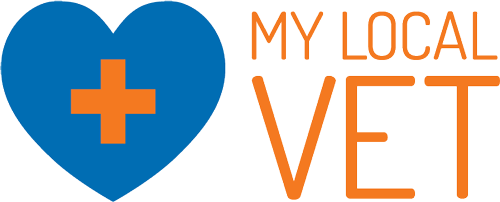Animal dentistry represents 60% of the procedural load at My Local Vet. Needless to say we’re good at it! We have a dedicated dental suite comprised of exactly the same instruments you would find in a human dental clinic. Our digital dental radiology ensures we don’t miss a thing and we always take the time to show our clients exactly what we find on x-ray. Our veterinarians have undergone post-graduate training in animal dentistry to ensure they’re up to speed with contemporary techniques and technology. Most importantly, they will explain dental disease and required treatment in a way that’s easy to understand.
Take control of your pet’s health and prevent serious oral infections as well as organ damage – call us and do your pet a favour!
Does your dog or cat have bad breath?
If your pet has bad breath it’s probably due to dental disease which is not only bad for your pet’s overall health but can be very painful! Even if your pet has normal smelling breath they may still be suffering from significant dental disease without you knowing. Dental disease is extremely common in animals and this is not surprising since they don’t floss and brush their teeth twice a day!
Go behind the scenes at My Local Vet to see how we make your pets mouth healthy again!
SPECIAL OFFER: My Local Vet is offering FREE ORAL VET CHECKS for your pets! That’s right, absolutely free! All you have to do is give us a call and make an appointment for a time that suits you. The receptionist will allocate 5 minutes for the vet to examine your pet’s mouth and discuss any treatment required.
What is Dental Disease?
The term “dental disease” refers to a spectrum of oral health issues ranging from mild calculus (think “bacterial cement”) on a few teeth to severe gingivitis, tooth root infection, bone resorption and eventually loss of teeth. Many pet owners are completely unaware of the state of their pet’s mouth until it is brought to their attention by their veterinarian.
Progression of Dental Disease
Bacteria attach to the teeth usually starting along the gum line where they are less likely to be dislodged. After a period of time these bacteria becomes mineralised and form a type of cement on the teeth known as “plaque”. This cement not only acts as a reservoir of bacteria but actually encourages the accumulation of more bacteria! What do bacteria cause?.. infections! The gums react to this bacterial insult by becoming inflamed (red and painful) which allows the ingress of bacteria into the blood stream. Once in the blood these bacteria can cause damage to the internal organs including the heart, liver and kidneys. Therefore, by removing the plaque from the teeth we are avoiding the unnecessary incursion of bacteria into the internal organs and the associated compromise to general health.
Dental descaling and ancillary plaque removal of your pet’s teeth is perhaps the single most important preventative measure you can take in order to optimise your pet’s health.
What is a Dental Descale and Ancillary Plaque Removal?
This is a procedure where the plaque is removed using a specialised electric tool called an ultrasonic descaler. Exactly the same procedure is performed in human dentistry only your pet will be given a general anaesthetic (we are yet to find a dog or cat that will lie back in the chair, open their mouth and let the vet descale their teeth!). Once all the teeth have been descaled they are then polished to discourage bacteria from reattaching to the tooth surfaces.
How Much Does it Cost?
The cost will vary depending on the severity of your pet’s dental disease. At My Local Vet we offer a FREE Dental Health Check. During this FREE Dental Health check our Vets will examine your pets teeth and provide you with Treatment plan to address any concerns.
We all know how important it is that our pets have plenty of exercise and a complete and balanced diet but not every pet owner is aware of the importance of pet oral hygiene. Most people visit their dentist about once a year despite brushing their teeth twice a day. Its not hard to imagine how important it is that your pet’s teeth are checked every six months in order to catch dental disease before its too late!
General anaesthesia at My Local Vet: The safety of our patients is paramount so we have invested heavily in expensive equipment and staff training to ensure vigilant patient monitoring. Every anaesthetised patient has a dedicated nurse monitoring them throughout their procedure and all patients receive intravenous fluids before, during and after. This ensures adequate hydration, optimising metabolism of anaesthetic drugs and enables excellent blood pressure management.
